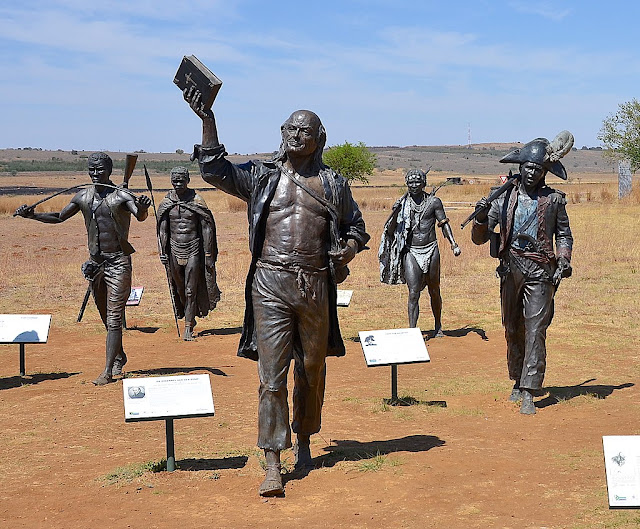By Simonetta Carr - Posted at Place for Truth:
The renowned historian Andrew Walls describes Johannes van der Kemp as an unconventional candidate for the London Missionary Society (LMS). At the time of his application, van der Kemp was in fact fifty years old and had both a higher education and a more complicated past than the average candidate. “While most LMS candidates lamented their early sins and misimproved talents and opportunities,” Walls writes, “this ex-dragoon officer really had been a sinner on a fairly spectacular scale. He had also been a deist and a rationalist author.”[1]Sinner, Deist, and Rationalist
Born in 1847 at Rotterdam, Netherlands, van der Kemp had started his theological studies on the footsteps of his father, a Reformed pastor. After graduation, he instead joined the army, progressing through the ranks until he became a Captain of the Horse and Lieutenant of the Dragoon Guards (a branch of the cavalry).
It was while serving as an officer that he fathered a daughter, Johanna. Since the mother was married, he brought up the child by himself until 1779, when another woman, Christina Frank, agreed to marry him and take on the mother’s role.
Leaving the army, van der Kemp went to Scotland to study medicine, graduating in 1782 from the University of Edinburgh. He practiced medicine in Scotland for a while, earning a reputation as a caring physician, then moved back to Holland.
Throughout this time, he had no interest in religion if not to deride it. Christianity was, to him, "inconsistent with the dictates of reason" and "the Bible a collection of incoherent opinions, tales, and prejudices." He initially admired Christ "as a man of sense and learning"[2] but lost his veneration when he realized that Christ called himself the Son of God.
He did feel the weight of his sins and prayed that God would prepare him, by punishing his sins, "for virtue and happiness." Because of this, he interpreted every misfortune as a punishment aimed at making him a better man. When this didn't happen, he realized that virtue and happiness were out of the reach of his reason. “I confessed then my impotence and blindness to God and owned myself to be like a blind man who had lost his way and who waited in hope that some benevolent person would pass by and shew him the right path.”[3]
